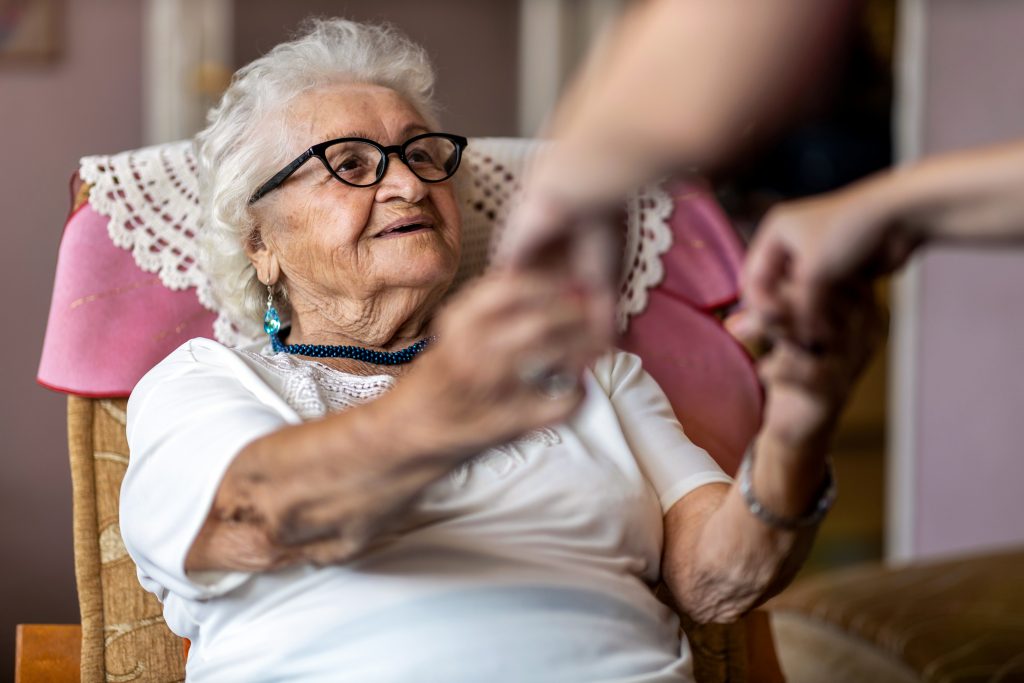
How to introduce care for your loved one
If you have a loved one who recognises they need help at home, introducing care will be a relatively easy task. For those who are less inclined to accept the situation, it can be a very stressful time for all involved.
You’ll often find several objections. Mostly based on the belief your loved one can cope without you, so these may sound familiar:
• It’s a waste of money, particularly if you are currently providing the care. This tends to happen if there is a lack of understanding or appreciation of the amount of time it’s taking you and the fact you have other commitments.
• An invasion of their privacy. Even if they aren’t the most private of people, someone coming into your home to help with everyday tasks can be a daunting prospect.
• Somehow it’s a reflection on them which can be seen as criticism. You’re in effect telling them they can’t cope on their own and need help with day to day living. This can be a sobering thought and a reality they don’t want to face.
You could be the main Carer or organise activities around your loved one. But when the time comes to provide additional support there are several ways you can approach the situation.
Find a way to address their objections
Introducing care in the home is not generally something that happens overnight. And it’s important to remember, there is an individual at the centre of any care package. Which means you’ve probably discussed care with your loved one and heard about their objections.
It’s best to tackle these rather than change the subject or ignore them. The simple act of listening to what they have to say calmly and rationally will help. You can then start to address their fears and look at reasoning with them. As part of this, you might want to involve other family members or close friends.
The next step is to make sure they are part of the process. This will depend on the personality and mental capacity of your loved one. You will be the best person to understand how much they can deal with. But be as transparent as you can and make them feel they are still in charge of their own home.
Position the need for additional care
The way you introduce care will be helped if you position it correctly with your loved one. Let them know that it’s going to support you as well. Make them feel they are really just helping you by having the Carer. Talk about It giving you extra time to keep on top of your housekeeping.
You could position the care as a temporary situation. A low-risk option for your loved one. In reality, you will want to find the right Carer and this will give you the flexibility to do this. Over time the visits will become part of their normal routine and everyday living.
If you’re facing a real uphill struggle to introduce care, why not talk about the Carer as one of your friends. Either someone who has been recommended by a friend or a person you know who is keen to help.
Allow for a slow start and build gradually
Once you have tackled the objections it’s a good idea to slowly introduce the additional care. You should start by meeting the Carers in your loved one’s home. An important first meeting. Keep it to a short visit but make sure the Carer is involved in some way. Maybe make a cup of tea or wash up.
You need to be there as well to help keep it very relaxed. After the visit, you can have a conversation with your loved one to discuss how it went. You may face further objections which you should talk about. But you can also say that it’s early days and let’s just see how it goes.
When you feel the time is right you can increase the length and frequency of visits. Maybe even reduce the number of times you need to be there. Add more tasks as you go along. Cleaning, ironing, a bit of shopping even meal preparation. Personal care might be the last area you want to tackle.
Dealing with a change in circumstances
There are occasions when you don’t have the advantage of introducing care gradually. Your loved one may have been suddenly taken into hospital. Maybe you have noticed a rapid deterioration in their health and mental well being.
In these situations, your local GP’s surgery can often help. A letter or visit from the doctor to explain why they need a care package can provide a context for your loved one. For some, the voice of authority can make a huge difference to the acceptance of a situation.
Your loved one may have been in a care home following a period in hospital or for rest bite. During this period their outlook may have changed. They want to go home but the journey back there can feel a bit daunting. For self-funded care, there are care agencies who can help with this. Liaising with the relevant people and making the necessary arrangements for a safe return home.
If you’re involved with the care of a loved one you will understand the need to be flexible. Every day you have new challenges. It’s how you deal with these that will make the difference. Which is why knowing where to turn and who to ask can be a great source of comfort.
Related links:
